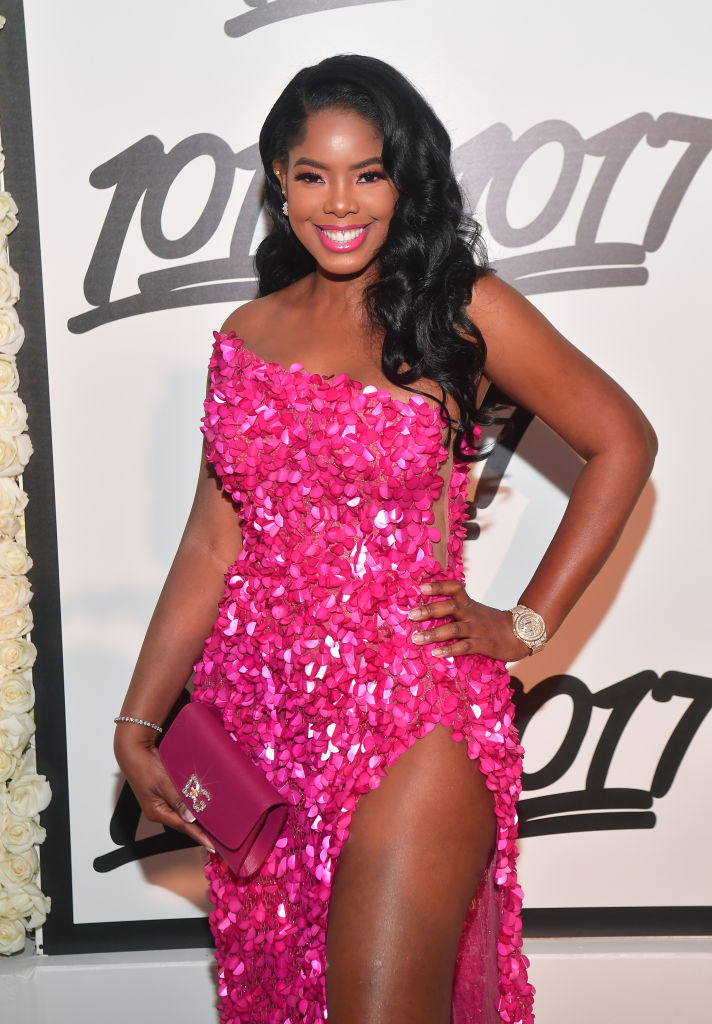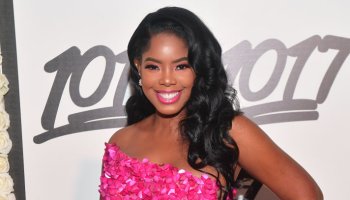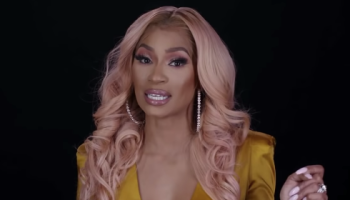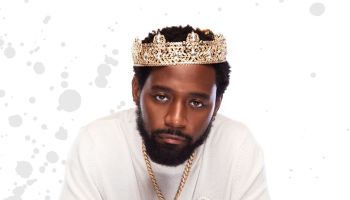“It’s the African roots for me! The tenacity, the strength, the rhythm, the curves, the features, the beauty. I’m blessed to have the best of both worlds,” says Juliette Castaneda, better known as Juju.
JuJu, who also goes Juliet Cee, rose to TV fame a supporting personality on the Love and Hip Hop franchises. The reality TV star and businesswoman is a proud Afro Latina born to Cuban parents. As a realtor, entrepreneur and owner of the popular 100% fine virgin hair company Candy Jewels, the bilingual brand owner has proven to be more than just a popular name from reality television. Her nonprofit organization, My Precious Jewels, demonstrates her love and empathy for young girls who strive to be a successful, confident woman like Juju. She promotes curvy healthy living through her advocacy on her personal social media platforms and walking around confidently with her smile, grace and “Chocolate Cuban bombshell” figure.
HelloBeautiful spoke with the “Secrets of a Jewel” author for Hispanic Heritage Month about colorism within the Afro-Latino community, how her experiences in Brooklyn and Miami influenced her racial identification and the importance of self-love and self-acceptance as a thick, curvy woman.
On the importance of Afro-Latinos being included in Hispanic Heritage Month:
“It’s pivotal that we are included. We are part of what makes Hispanic Heritage! Our African roots are key in every piece of Hispanic Heritage in every country. Hispanic heritage can not be celebrated without the African influence.”
On Brooklyn and Miami influencing her racial identification:
“They were a bit different. In Miami, there are a lot of Latin people, especially Afro-Latinos. Miami was a stop for many Cubans so my Cuban culture was dominant. New York is more of a melting pot in different cultures.”
On the complexity of being Black and being Latina:
“The two have always been intertwined as one, for me. It’s who I am as whole there’s no choosing between the two. I’m a Black Latina there is no separating the two. It’s always been more complex for others to understand, rather than myself. Growing up in a Cuban household, eating rice and beans for breakfast, lunch and dinner,listening and dancing to Rumba and Salsa music, being taught our roots and traditions.”
On colorism in the Afro-Latino community:
“In all transparency, it’s just as prevalent and common as it is in the United States. The lighter-skinned Latinos are highlighted [more] on television and magazines. I remember watching Spanish soap operas growing up and, at a very young age, noticing Black women [were] portrayed as maids.There was and still isn’t much representation in the Latin media. [Other Latinos] are in shock when I speak Spanish, and ask ignorant questions like, ‘How come you speak Spanish?’”
On how we can raise colorism awareness:
“[By] bringing awareness to this issue within the community [and] having real conversations about the issue. Colorism is unfortunately a very ugly part of Latin America; many are still in denial about it. It’s definitely time to have those honest open conversations at the bare minimum.”
On stigmas against thicker, curvy women:
“The notion that if you’re curvy you’re unhealthy or unable to be accepted as far as the standard for women’s bodies. We come in all shapes and sizes. We can all be healthy in our own frame and body type.”
On self-acceptance and body positivity:
“Growing up, I was taller than all the boys, thicker and more developed than all the girls my age. It was definitely something I had to learn to embrace. I started fully truly doing so when I was introduced to fitness. My mother embedded confidence in me from early on. Self love at this point in my life is really tolerating less and loving me more!”
Advice for younger women who may suffer from body insecurities:
“I would tell them to take their time in getting to love, know themselves, and accepting themselves. Being thicker or curvier than other women isn’t a hindrance. Embrace those things about you and grow with them. Beauty comes in different shapes and sizes. You’re beautiful if you’re petite, curvy, or thick. It’s all about how you carry yourself and your self confidence, which is key! All of that works together to radiate who you are. We are all queens in our own right!”
RELATED STORIES:
Do Rap Names Like Light Skin Keisha And Mulatto Perpetuate Colorism?
‘Dark Girls 2’ Digs Even Deeper To Explore Colorism In The Black Community
JuJu: Colorism Is A Very Ugly Part Of Latin America was originally published on hellobeautiful.com
















